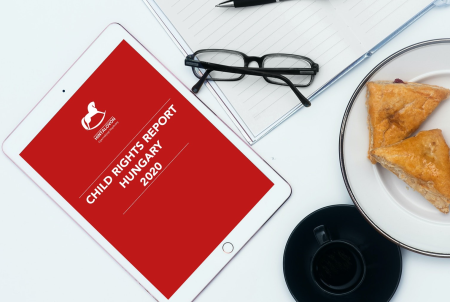Hintalovon Child Rights Foundation published a summary of the most important Hungarian child rights events of 2020. Exclusion, exploitation, and epidemic – these were the most significant child rights issues last year.
Epidemic
- In some cases, legislation responded only belatedly to the challenges and needs arising from the pandemic.
- The biggest change for children was the massive transformation of education. Contradictory messages relating to the emergency; delays; organizing graduation, caused difficulties.
- Digital education further prevented access to education for the already disadvantaged children – particularly Roma students. 8% of students with disabilities did not receive any distance learning at all and 15% received development only once a week.
Exclusion
- The Ninth Amendment to the Fundamental Law narrowed down the definition of ’family’ the types of identity and defined the set of values that must be protected during the upbringing. In addition, the new regulation on adoption makes adoption more difficult for single parents and same-sex couples.
- Ratification of the Istanbul Convention has been refused. There continued to be a “crisis caused by mass immigration” in Hungary, therefore only a few families were able to apply for asylum in Hungary, and unaccompanied minors did not enjoy priority at all.
Exploitation and sexual abuse
- Increased digital presence and webcam use during the pandemic raised new privacy issues. Because of coronavirus, the children also had to face virus-motivated bullying.
- The advertising industry took steps relating to including children in advertisements and influencer collaborations.
- In March 2020, 1,5 times more domestic abuse was reported to the police than in the previous year. The number of minor victims of sexual violence has increased by 60% since last year.
- Sexual exploitation and abuse of children in online spaces and the use of social media received increased attention.
- Unprecedented attention was paid to the sexual exploitation and abuse of children in online spaces. Compared to 2016, six times more pedophilia-related content was reported to the authorities.
The report also contains findings on legislation, discrimination, freedom of expression, privacy and information, violence, family, disability, health, standards of living, education, free time, refugee children, justice, and sexual exploitation.
- Loghează-te sau înregistrează-te să postezi comentarii
- 58 vizualizări






